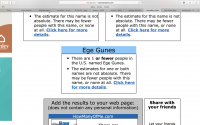Difference between revisions of "Ege Gunes"
| Line 43: | Line 43: | ||
==Ethical Implications & Power Dynamics== | ==Ethical Implications & Power Dynamics== | ||
| − | Considering all this, one should already assume that there will be ethical implications that come with this fallacy as well as issues regarding power dynamics, both at an individual and societal level. Before going any further, one should understand the fact that for something to be treated as authentic or complete, it doesn’t have to be actually complete or authentic, it just needs to look authentic and complete. For all intents and purposes, imagine a scenario where Jane Doe, your average individual, is not happy with herself and decides to create an online profile where she portrays the ideal Jane Doe in her mind, not the actual one. So far, in theory at least, there is nothing ethically wrong with this as you are not directly impacting anyone but yourself. | + | Considering all this, one should already assume that there will be ethical implications that come with this fallacy as well as issues regarding power dynamics, both at an individual and societal level. Before going any further, one should understand the fact that for something to be treated as authentic or complete, it doesn’t have to be actually complete or authentic, it just needs to look authentic and complete. For all intents and purposes, imagine a scenario where Jane Doe, your average individual, is not happy with herself and decides to create an online profile where she portrays the ideal Jane Doe in her mind, not the actual one. So far, in theory at least, there is nothing ethically wrong with this as you are not directly impacting anyone but yourself. However, when Jane Doe decides to use this profile as a way of installing, replacing or restoring the notion as well as the identity of Jane Doe in somebody else’s mind, she is creating an imbalance in power dynamics by distorting their perceptions about her and this poses an ethical problem. The reason behind this ethical problem is the fact that you are adherently positioning yourself in a more advantaged, superior position compared to people consuming the misleading and misinforming that you have provided through the identity that you have created. Since this identity is not authentic, complete or stable, it is expected that this would distort others’ perception of you as well as their interpretations about you. Ironically, we’ll see that our perspective is narrow when it comes thinking about our own distorted interpretations. In reality, this symbiotic relationship is a two-way street. We distort other people’s perceptions of us as well as the power dynamics of our relationship with them, but the very same we distort them, they also distort our perspectives and dynamics. |
Latest revision as of 16:23, 5 March 2021
Contents
Introduction
Hello! My name is Ege Gunes, and according to howmanyofme.com, I am the only Ege Gunes living in the United States! Considering the fact that I am from Turkey and my name can even be considered rare in Turkey, this is not surprising. However, if we consider the fact that I have close to zero presence online, this is weird… What is even more weird is the fact that there is a good chance that, solely based on the content, you can depict or portray two different versions of Ege using the information available in search engines, and form opinions about me on something/someone that may not even be me. Based on my conversations and experiences with other people, I know for a fact that I am not the only one complaining about this. Therefore, it is evident that these concerns give rise to the instance of questioning the authenticity, stability as well as the completeness of our data identities. From my experience of observing the misrepresented Ege and talking to people that are suffering from the same problem, I argue that our data identities will not be, on majority of the instances, authentic, stable or complete. I know it may not make sense at first but hear me out: Our data identities will not be authentic, stable or complete because humans, as a result of their nature, are dynamic, ongoing entities- similar to the notion of “information”. Therefore, such entities would require constant reevaluation and reassessment to preserve their authentic, stable and complete nature. As a result of our failure to constantly reassess and reevaluate, we not only fail to produce or engage with authentic, stable and complete data/material but we also tend to create ethical consequences and imbalances/distortions in our power dynamics with each other.
Background and Social Media Use
Growing up in Turkey, my mom told me to be very careful about what I post on social media and what I publish online about me. She always reiterated the idea that I will never know who will be accessing that information, what will be their motive to do so and what will they do with that. Although she sounded paranoid at the time, I complied. For most of my youth, I have been a passive user on Twitter, Instagram and Facebook. After coming to Michigan for college, I have decided to close my accounts in Facebook and Twitter. Therefore, I don’t have that much of a material to show as evidence but even with this limited supply of evidence is enough for me to support my argument and demonstrate the stark difference between two different Ege’s. Through that demonstration, I will explain why context matters and how it relates to the notions of authenticity, stability and completeness as well as its implications about power dynamic and ethics.
Past Use
My first passively active (I was tweeting more compared to my average now- Currently no Twitter account, lol) Twitter use began in 8th Grade. Since I was born and raised in Turkey, most of my tweets dating back are in Turkish and I will do my best to effectively translate these tweets.
Tweet #1: “I just slipped in a puddle of my own puke.” Tweet #2: “Right now is the perfect time to not do anything.” Tweet #3: “There is nothing more fun than performing the Harlem Shake Dance.” Tweet #4: “I hate the fact that I will never be able to forget her…(Bold Statement considering I don’t even recall who I mean by “her”.) ”
Current Use
My only active social network use is through Linkedin. Similarly, when you type my name to google, the only links that will reveal information about me are my Twitter and Linkedin pages. Now, Let’s take a look at my Linkedin page.
Profile Bio: B.A in Economics and minor in Business Stephen M. Ross School of Business at University of Michigan. Experiences: Deloitte, HSBC (The point is these are respected financial institutions where the work environment/culture is demanding and not easy for one to join). Skills: Stock Valuation, Excel, Leadership, Stress Management (Sounds like a life-coach, I know…), Strategy, Finance.
Two Different Ege’s?!
Let’s analyze the Twitter Ege: Teenager, still a kid, naïve, thinks that the idea of a puke is funny, thinks his love affair is of the utmost significance, and most importantly, likes to perform the Harlem Shake dance.
Let’s analyze the Linkedin Ege: Grown-up, dedicated, ambitious, career-oriented, smart.
Observe the stark difference and recall the fact that both pages are created by me. Simply put, Wow.
Analysis and Takeaways
Here, it is important to focus on two things. First and foremost, while Twitter Ege was once an actual version of myself and had merit, it is not a good reflection or representation of my current personality. While the Linkedin version of Ege has more merit and is a better reflection of myself, it is still not complete as it only reveals certain information about me. So, as a person who mostly avoided social media platforms, there is still stuff about me online and it isn’t fully accurate.
Secondly, I have stated in my introduction paragraph that we, as humans, are dynamic, ongoing entities, and consequently, we require constant reassessment and reevaluation to be authentic, complete and stable. As Floridi puts it, “Questions about the identity of something may become paradoxical if they are asked without specifying the relevant interface (context) that is required to be able to answer them.” To put it simply and in the context of these examples, The Ege that is writing this piece is not the Linkedin Ege nor it is the Twitter Ege. This Ege does represent certain characteristics of Linkedin Ege but is not fully compatible with that idea. Similarly, although this Ege is not compatible with the Twitter Ege, and its characteristics, the Ege that evolved to who he is right now was once responsible for the illustration of Twitter Ege. Well, if this is the case and the reflections that we’re seeing are not good reflections, then how can we label them as authentic or complete? We can’t. Our online data-identity can only be a snapshot of a moment and in order for it to be authentic, the circumstances as well as the context of that snapshot needs to be provided for you in every possible instance. Since we don’t get to pick when that moment would be, we don’t know when to alter or change the context or the circumstances and this further prevents the idea of stability in this setting. Even if you control and engage in what is produced/published about you online in order to get them to know the real Ege, there is a very good chance someone will come across with what we call a “Frozen” information. This “Frozen” information refers to any and all information that is stuck online, meaning it is disconnected or out-of-synch with the rest of information available about you. Thus, this information will have an incomplete framework and will be missing contextual information. Therefore, unless every bit of your personality change is reflected in your online identity in the proper order through constant reassessment and reevaluation, we cannot, at least from a philosophical standpoint, label it as authentic, complete or stable.
Ethical Implications & Power Dynamics
Considering all this, one should already assume that there will be ethical implications that come with this fallacy as well as issues regarding power dynamics, both at an individual and societal level. Before going any further, one should understand the fact that for something to be treated as authentic or complete, it doesn’t have to be actually complete or authentic, it just needs to look authentic and complete. For all intents and purposes, imagine a scenario where Jane Doe, your average individual, is not happy with herself and decides to create an online profile where she portrays the ideal Jane Doe in her mind, not the actual one. So far, in theory at least, there is nothing ethically wrong with this as you are not directly impacting anyone but yourself. However, when Jane Doe decides to use this profile as a way of installing, replacing or restoring the notion as well as the identity of Jane Doe in somebody else’s mind, she is creating an imbalance in power dynamics by distorting their perceptions about her and this poses an ethical problem. The reason behind this ethical problem is the fact that you are adherently positioning yourself in a more advantaged, superior position compared to people consuming the misleading and misinforming that you have provided through the identity that you have created. Since this identity is not authentic, complete or stable, it is expected that this would distort others’ perception of you as well as their interpretations about you. Ironically, we’ll see that our perspective is narrow when it comes thinking about our own distorted interpretations. In reality, this symbiotic relationship is a two-way street. We distort other people’s perceptions of us as well as the power dynamics of our relationship with them, but the very same we distort them, they also distort our perspectives and dynamics.


